I had a shorter list of terrible films to choose from this year than usual. I think there are two reasons for this.
First, it was a middling year on the whole, with many average to very good films, but few that broke through, for me, either to excellence or awfulness.
Second, I changed the way I watch movies this year. For many years I had an annual pass for the UK's largest multiplex chain. This year I switched that for a similar deal with Curzon, whose programming is more eclectic. As a result I missed much of the year's mainstream fare after April. I say missed, but that's a lie, I can't say there was a single major release that I truly regret not catching. I think this switch in my viewing has led to a much better average among the films I saw in 2015 as opposed to recent years.
First, it was a middling year on the whole, with many average to very good films, but few that broke through, for me, either to excellence or awfulness.
Second, I changed the way I watch movies this year. For many years I had an annual pass for the UK's largest multiplex chain. This year I switched that for a similar deal with Curzon, whose programming is more eclectic. As a result I missed much of the year's mainstream fare after April. I say missed, but that's a lie, I can't say there was a single major release that I truly regret not catching. I think this switch in my viewing has led to a much better average among the films I saw in 2015 as opposed to recent years.
All this said, the pickings for this list, though slim, were rich indeed and I had to drop some films I truly will miss from this countdown. Make no mistake, these 10 movies are all pretty awful, some made me extremely angry, and I'd be happy to never see any of them again.
10: Rosewater
Jon Stewart's directorial début is a disappointment rather than a truly awful film, it strives for importance, but its impact is lost in uninspired directorial choices. The story of the imprisonment and interrogation of Iranian journalist Maziar Bahari (played by Gael Garcia Bernal) is impactful enough on its own, without the mawkish scenes of him hallucinating images of his Father and Sister. When Stewart pulls back and just allows the situation to speak for itself (as when Bahari gets to speak to his pregnant wife on the phone), we get glimpses of what the film could have been, but all too often the directorial inexperience and the weight of Stewart's tangential personal involvement in the story hobbles it.
Aside from this, the language of the film proved a disconnect for me. The Iranian main characters are played by a Mexican (Bernal) and a Dane (Kim Bodnia as the interrogator), and all the dialogue is in English, not only does this confuse a few moments when you wonder how much Bernal's captors understand, but it created a distance for me, an awareness of watching actors rather than being sucked into a situation. This is an Iranian story, it feels wrong in English.
It's a pity that this doesn't come off, it's a deeply sincere film, but undone by inexperience.
Aside from this, the language of the film proved a disconnect for me. The Iranian main characters are played by a Mexican (Bernal) and a Dane (Kim Bodnia as the interrogator), and all the dialogue is in English, not only does this confuse a few moments when you wonder how much Bernal's captors understand, but it created a distance for me, an awareness of watching actors rather than being sucked into a situation. This is an Iranian story, it feels wrong in English.
It's a pity that this doesn't come off, it's a deeply sincere film, but undone by inexperience.
9: What We Become
This is going to be a recurring theme on this year's worst list, but the main reason that What We Become has ended up here isn't because it's one of the worst films ever made - it's entirely competently acted and shot - it's because there is not one single frame of it that I haven't seen before. This Danish zombie/pandemic film draws quite heavily on Chris Gorak's underrated Right At Your Door and very heavily on every zombie movie ever made.
The film shuffles forward, seldom dull, but never truly engaging either, and never remotely original. Every scene, every shot, could have been drawn from somewhere else and a hackneyed horror film doesn't magically become better because it's not in English.
This is going to be a recurring theme on this year's worst list, but the main reason that What We Become has ended up here isn't because it's one of the worst films ever made - it's entirely competently acted and shot - it's because there is not one single frame of it that I haven't seen before. This Danish zombie/pandemic film draws quite heavily on Chris Gorak's underrated Right At Your Door and very heavily on every zombie movie ever made.
The film shuffles forward, seldom dull, but never truly engaging either, and never remotely original. Every scene, every shot, could have been drawn from somewhere else and a hackneyed horror film doesn't magically become better because it's not in English.
8: Me and Earl and the Dying Girl
Well, it's better than last year's godawful cancer movie. Just. Me and Earl and the Dying Girl (the more I type that title the more I hate it) has many of the familiar problems of young adult literature adaptations, most pressingly the fact that its characters have no personality. As the Dying Girl of the title Olivia Cooke has a tumour and a small assemblage of quirks where her character's personality should be and worse, what personality she does develop largely comes in the last 10 minutes of the film, entirely in service of the male lead.
That male lead (Thomas Mann as Greg), is both an annoying character - it's another movie that forces me to hang out with an asshole I'd rather avoid, without him being very interesting - and a weak performance. Mann is flat and affectless throughout, which completely undermines the connection he should be developing with Cooke's Rachel.
While it has a few moments of wit, thanks to the parody films that Greg [Me] and Earl make together (well, their titles anyway), the film's overwhelming tweeness drowns out the few moments of promise.
7: Chappie
That male lead (Thomas Mann as Greg), is both an annoying character - it's another movie that forces me to hang out with an asshole I'd rather avoid, without him being very interesting - and a weak performance. Mann is flat and affectless throughout, which completely undermines the connection he should be developing with Cooke's Rachel.
While it has a few moments of wit, thanks to the parody films that Greg [Me] and Earl make together (well, their titles anyway), the film's overwhelming tweeness drowns out the few moments of promise.
The story is an amalgamation of elements of Short Circuit (the coming of age stuff), Ghost in the Shell (several of the bigger sci-fi concepts) and Robocop (the crime/policing side of the story). The design also steals from all of these sources (Robocop especially egregiously). What ideas Blomkamp has are either abandoned in favour of CGI spectacle, poorly executed thanks to some of the worst performances of the year, or lost in the cacophony of competing elements and abysmal dialogue.
The performances are the worst part though. The perma-mugging Sharlto Copley is just awful as the voice and motion capture source of Chappie, Dev Patel is wooden as his creator, Hugh Jackman can blame his performance, which boomerangs from pious concern to gleeful violence on the script, but Sigourney Weaver's autopilot rendition of a business bitch has no such excuse.
However, it gets worse, in the shapes of Ninja and Yo-Landi Visser, co-vocalists in rap-rave act Die Antwoord, who both have major roles with serious screentime and compete to give 2015's most fingernails down the blackboard grating performance. It's a close run thing but Ninja's strained faux gangsta schtick wins. We lose.
Every single idea in Chappie has been better and more fully executed in other films, hell, the final image was better executed in a Bjork video. There's no reason for this to exist.
6: Mistress America
I'm not generally fond of what I've taken to terming 'hangout movies'. Hangout movies are those films that are driven not by plot but simply by spending time in the company of a character or small group of characters. I'm not averse to them when the character or characters are people I'd like to spend time with in real life, or people I find interesting enough to want to spend 90 minutes with in a cinema, even if I'd avoid them otherwise. The people in Mistress America are dull and largely have noxious personalities, I'd leave a party to avoid them.
Noah Baumbach's films have been having this effect on me for a while, but at least he used to write about interesting bastards. Roger Greenberg (Ben Stiller in Greenberg) is a wanker of such magnitude that for me it undermined the plot of the film, but he's not boring. The characters in Margot at the Wedding are uniformly terrible, but again, their conflicts are interesting. This is not true of Gerwig's Brooke, nor of Lola Kirke's Tracy (pretty damn awful herself) .
Given that, all Mistress America amounted to for me was 45 minutes in the company of people I hated, then another 45 minutes watching them do forced, desperately unfunny, screwball comedy. I think that's my last Baumbach for a while.
Note: Yes, I know Baumbach made a film [While We're Young] without Gerwig this year, but since I hated the trailer and fans seemed to like that one less, I skipped it.
Noah Baumbach's films have been having this effect on me for a while, but at least he used to write about interesting bastards. Roger Greenberg (Ben Stiller in Greenberg) is a wanker of such magnitude that for me it undermined the plot of the film, but he's not boring. The characters in Margot at the Wedding are uniformly terrible, but again, their conflicts are interesting. This is not true of Gerwig's Brooke, nor of Lola Kirke's Tracy (pretty damn awful herself) .
Given that, all Mistress America amounted to for me was 45 minutes in the company of people I hated, then another 45 minutes watching them do forced, desperately unfunny, screwball comedy. I think that's my last Baumbach for a while.
Note: Yes, I know Baumbach made a film [While We're Young] without Gerwig this year, but since I hated the trailer and fans seemed to like that one less, I skipped it.
5: Madame Courage
I really thought this was going to be the single dullest film of 2015's London Film Festival. It didn't even manage that meagre achievement (see No. 3). I keep having to clarify that I don't have an inherent problem with slow or minimalist cinema, I think for me though, the caveat is that if in story terms you are going to take that route, then in character terms I need to find something compelling, because while beautiful images are all well and good - which isn't to say Madame Courage has those either - they aren't the be all and end all of what I come to cinema for.
This incredibly minimal story, set in Algeria, is of a young drug addicted thief who falls for a girl he mugs and begins following her and standing outside her window. What does he find so intriguing about her, why is she not more intimidated by him? On these and many, many other questions the film is oblique to the point of tedium. Many scenes simply depict Omar (the thief) standing outside this girl's window for minutes on end. Nothing is said, nothing happens, we just watch him stand, or sit. This might have proven menacing if director Merzak Allouache gave any sense of building to something, but even when this appears, finally, to be what he's doing, it amounts to less than nothing.
On the sidelines there are scenes of Omar interacting with his Mother and Sister at home, but these feel overblown and, while they strain to make a point about women in this society, the characters are so thin that it never comes off. For the most part, for all its incident and interest, I may as well have watched a blank screen rather than Madame Courage.
This incredibly minimal story, set in Algeria, is of a young drug addicted thief who falls for a girl he mugs and begins following her and standing outside her window. What does he find so intriguing about her, why is she not more intimidated by him? On these and many, many other questions the film is oblique to the point of tedium. Many scenes simply depict Omar (the thief) standing outside this girl's window for minutes on end. Nothing is said, nothing happens, we just watch him stand, or sit. This might have proven menacing if director Merzak Allouache gave any sense of building to something, but even when this appears, finally, to be what he's doing, it amounts to less than nothing.
On the sidelines there are scenes of Omar interacting with his Mother and Sister at home, but these feel overblown and, while they strain to make a point about women in this society, the characters are so thin that it never comes off. For the most part, for all its incident and interest, I may as well have watched a blank screen rather than Madame Courage.
4: The Corpse of Anna Fritz
I like my movies messed up and I especially like body horror. This really should have been on the other list this year, if it had worked. The premise is simple; a famous actress dies unexpectedly and the young morgue attendant invites his friends to see the naked corpse before it is embalmed. Soon though, things move beyond looking and while she is being raped, Anna Fritz (Alba Ribas in an exploitative part) wakes up. There is a terrifying locked room thriller, with a rich subtext about how we as a society believe we own celebrities, buried somewhere in this premise, but instead co-writer/director Hèctor Hernández Vicens opts to make one of the most by the numbers pieces of horror I've seen this year.
The Corpse of Anna Fritz runs through its potentially unnerving story within half an hour, then proceeds to stretch in a way that strains credulity and patience more often than it does nerves. Worse than this is the grinding predictability of the whole thing. Almost every scene is predictable not just in plot terms, but down to the visual choices. This reaches its apex in a chase scene that should be the film's most suspenseful moment but so hackneyed is the execution that I could spot every single shot and every single edit coming a mile away.
This should have been right up my dark little street, but it fails on almost every level.
3: Box
I like my movies messed up and I especially like body horror. This really should have been on the other list this year, if it had worked. The premise is simple; a famous actress dies unexpectedly and the young morgue attendant invites his friends to see the naked corpse before it is embalmed. Soon though, things move beyond looking and while she is being raped, Anna Fritz (Alba Ribas in an exploitative part) wakes up. There is a terrifying locked room thriller, with a rich subtext about how we as a society believe we own celebrities, buried somewhere in this premise, but instead co-writer/director Hèctor Hernández Vicens opts to make one of the most by the numbers pieces of horror I've seen this year.
The Corpse of Anna Fritz runs through its potentially unnerving story within half an hour, then proceeds to stretch in a way that strains credulity and patience more often than it does nerves. Worse than this is the grinding predictability of the whole thing. Almost every scene is predictable not just in plot terms, but down to the visual choices. This reaches its apex in a chase scene that should be the film's most suspenseful moment but so hackneyed is the execution that I could spot every single shot and every single edit coming a mile away.
This should have been right up my dark little street, but it fails on almost every level.
3: Box
Peter plays Cristina, a stage actress in her mid 30s, a little distracted both in rehearsals and at home with her husband and young son. Rafael Florea plays a 19 year old boxer, looking for success, who begins following Cristina home. After an hour's repetitive and largely silent screentime of this, they finally speak, agreeing to go for one coffee, after which Rafael will promise to stop following Cristina home. The film's last half hour, after this 'date' is grindingly predictable, but the film builds to nothing more than a pointless ellipsis.
It would be something if we got any sense of a connection between Cristina and Rafael, that last image might then prompt questions, but they're so uninteresting that by the end it simply feels as though writer/director Corneliu Porumboiu has tired of the characters, long after I had.
2: Awaiting
I have to be careful how I phrase this, because there are words I don't want to use, but to say that Awaiting (which played at Frightfest before getting a DVD release this year) is 'inspired by' 1989 Canadian chiller Cold Comfort would be to, in my opinion, massively understate the debt that writer/director Mark Murphy owes that film.
On its own merits, Awaiting is pretty awful. The performances of Tony Curran and Diana Vickers as a serial killer father and his shut in daughter aren't bad, but they're in service of a film that unspools like a collection of moments and shots drawn from other, better, films even before you get to the similarities to Cold Comfort. If you have seen that film then watching Awaiting will often be an exercise in deja vu, as Murphy mirrors not just plot details (often down to the tiniest nuances) but dialogue, images and even editing and shot structure. In this way Murphy hobbles himself, because even the few things he does right here seem to belong to another filmmaker first.
On its own merits, Awaiting is pretty awful. The performances of Tony Curran and Diana Vickers as a serial killer father and his shut in daughter aren't bad, but they're in service of a film that unspools like a collection of moments and shots drawn from other, better, films even before you get to the similarities to Cold Comfort. If you have seen that film then watching Awaiting will often be an exercise in deja vu, as Murphy mirrors not just plot details (often down to the tiniest nuances) but dialogue, images and even editing and shot structure. In this way Murphy hobbles himself, because even the few things he does right here seem to belong to another filmmaker first.
1: Terminator: Genisys
Arnie's tired take on the titular cyborg is easily his worst leading performance since ending his Governorship of California. He's reduced to spouting endless confusing exposition, trying to find a quotable one-liner ("I'm old, not obsolete" won't be a line we'll see callbacks to in future Arnie films) and generally hamming it up. In previous films, Schwarazenegger's performances, subtly shifted with each different iteration of the Terminator, have been strong. Here he's weak all round, he seems bored and even his action scenes have a listless quality that suggest he's barely along for the ride. This isn't to say the rest of the cast is better: Emilia Clarke is a catastrophically miscast and bland Sarah Connor, while Jai Courtney still can't provide any answer to the frequently asked question 'Why does Jai Courtney have a career?'
The timeline bending storyline, which attempts to write the consistently and sadly underrated Terminator 3: Rise of the Machines out of continuity, is perhaps the film's very worst element. It's less a screenplay than a series of nadirs for the franchise. First the godawful moment in which Courtney arrives in this movie's 1984 and we see 1984 Arnie, the seemingly unstoppable threat of the first film, neutered within seconds. Then there's the twist. The godawful, utterly miscalculated, laughably executed and acted, thoroughly pre-spoiled twist. The idea is beyond terrible, but the performance it is anchored to is so bad that it undermines even the tiniest chance of it having the impact it might have achieved in the second or third films.
The tragedy of Terminator: Genisys (leaving aside its nonsensical tytle) is that for about 30 seconds we glimpse a movie that could have been, a movie that could have been new and different and interesting. Why couldn't we have seen the film set in 1973, with the Terminator raising and protecting Sarah Connor as a child? It would be a new context for the franchise, with new challenges inherent in the setting. But that's the thing, that would be new and that, in a Hollywood apparently intent on feeding on itself until it chokes on its own self-regarding nostalgia, just wouldn't do.

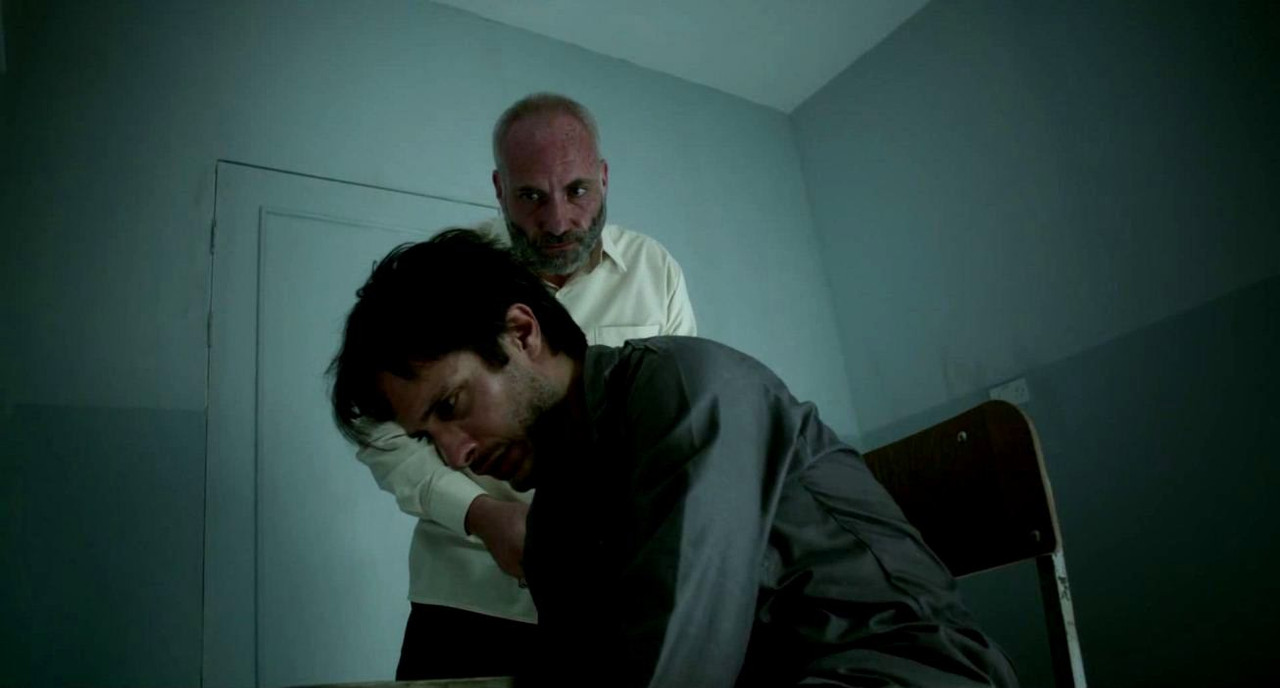


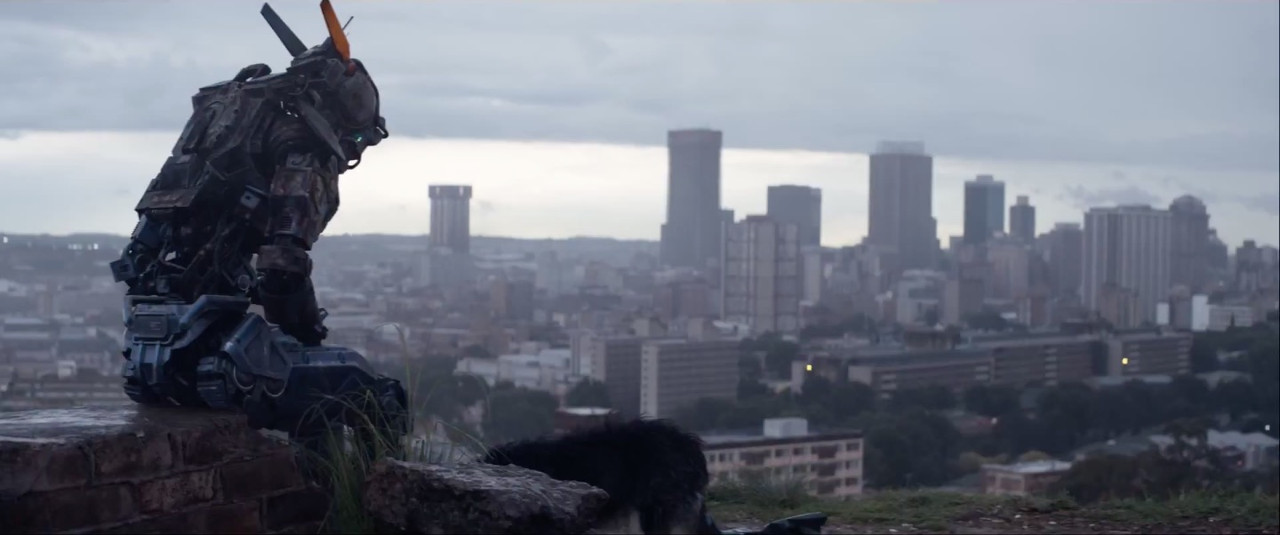

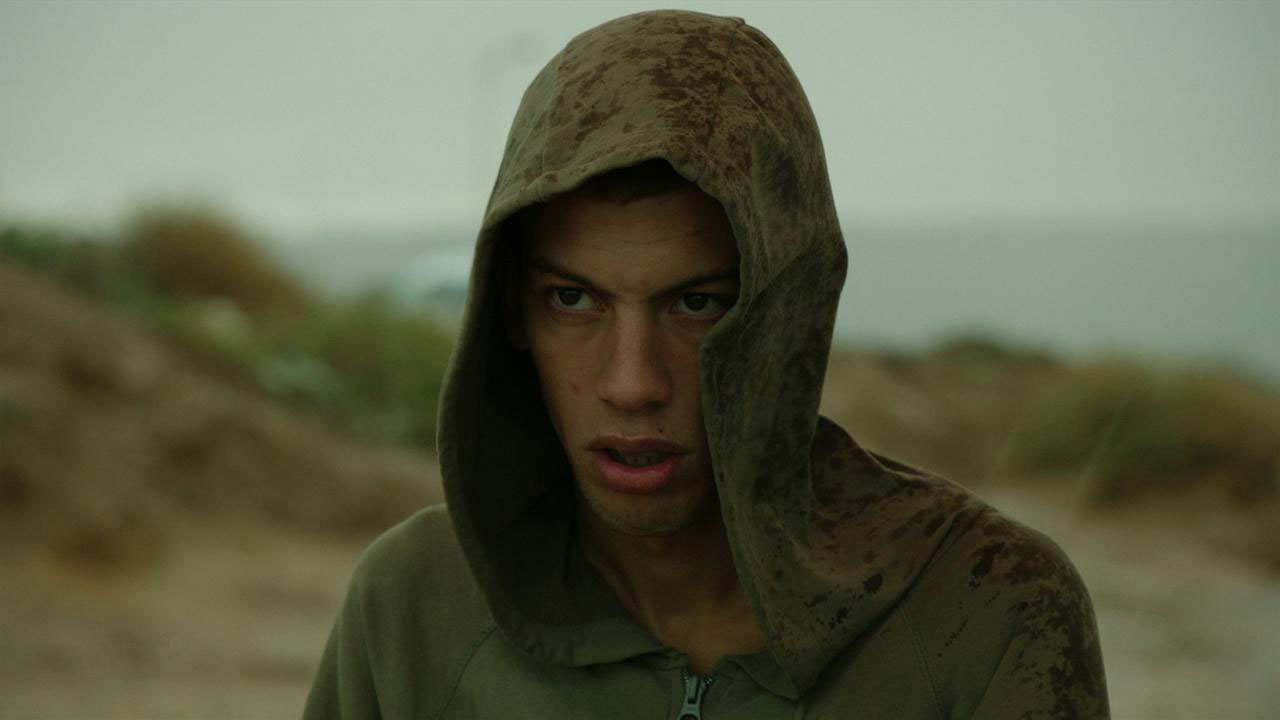

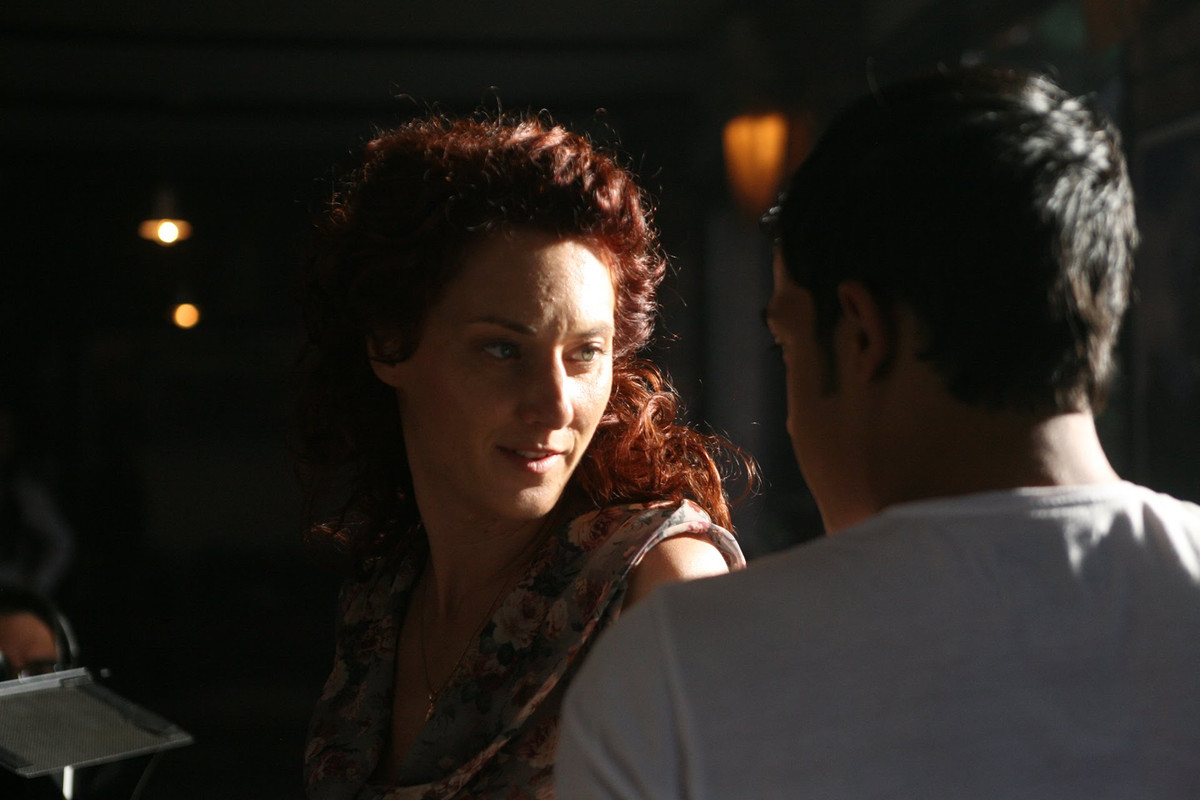
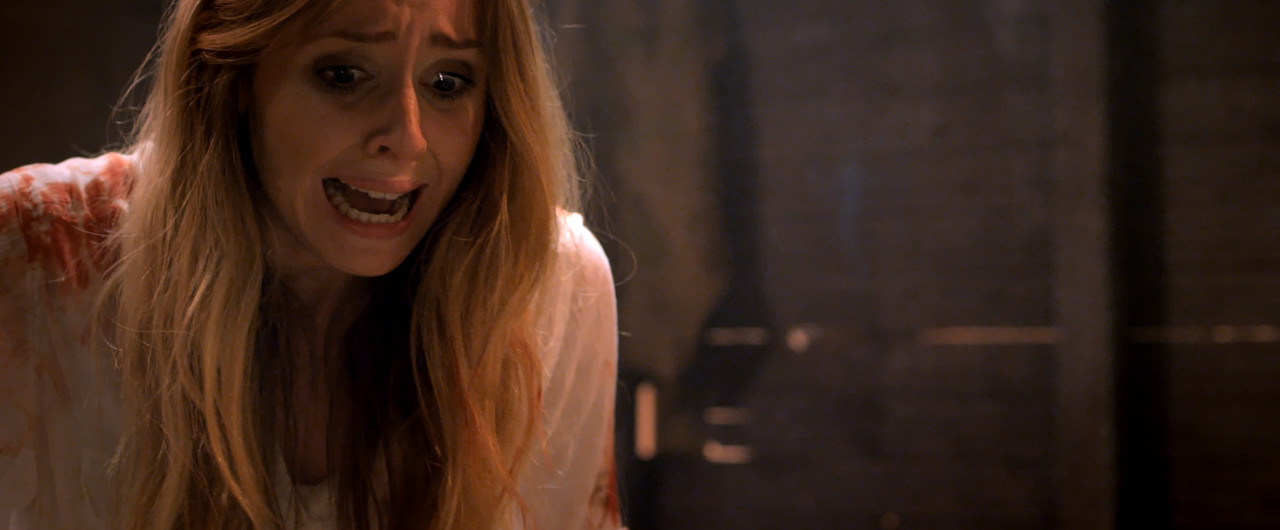
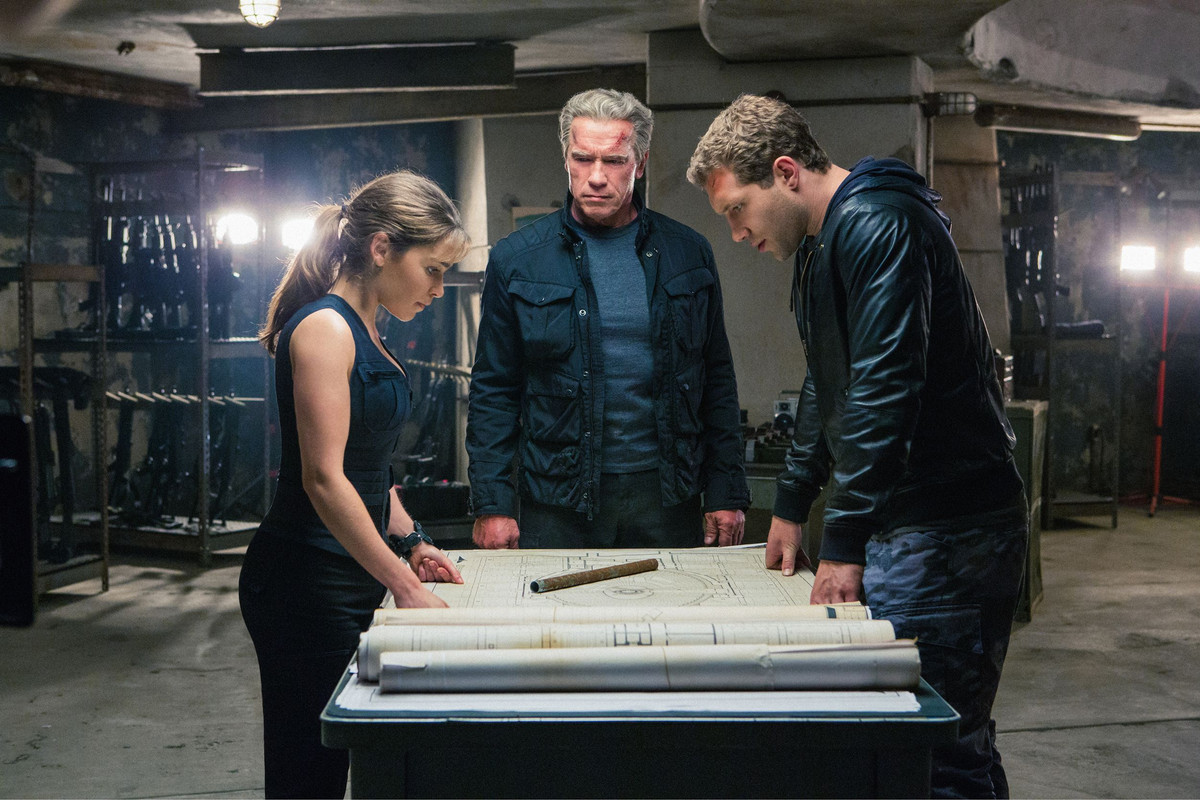
No comments:
Post a Comment